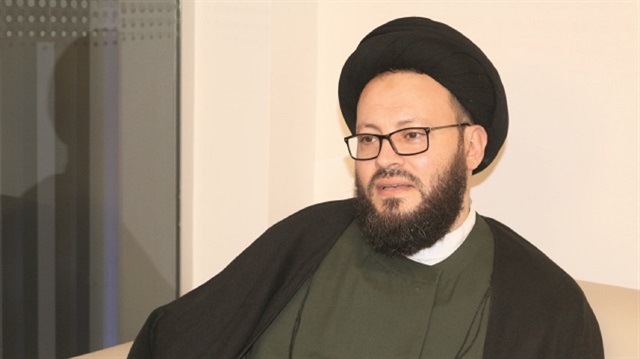
Lebanon’s Islamic Council President Shiite leader Mohamed Ali al-Husseini said Iran aims to draw a new map of the region, and that Turkey has a historic responsibility to prevent this
Lebanese Shiite religious scholar Mohamed Ali al-Husseini spoke to Yeni Şafak about Iran’s destructive policies in the region, and the Shia sect. Al-Husseini said the groups under Iran’s administration in the name of Shia had committed treason in other countries, and that Iran abused had Shiites for their Farsi-Safavid policies.
He also emphasized that a new map is going to be drawn in the region, and added: “Turkey has a historic duty. It should prevent this project. Turkey, which is a very powerful state, can take action.” Al-Husseini has visited many countries and met Shiites to warn them against Iran.
* What is Lebanon’s perception of Hezbollah fighting in Syria?
The patriots of Lebanon, in general, are against Hezbollah fighting in Syria. However, some Lebanese feel obliged to support it, even though they do it unwillingly. Because these Shiites are convinced that they are there to they protect their sect. There is propaganda that Daesh will attack sacred Shiite positions in Syria. Yes, Hezbollah got involved in the war in Syria, but they did not do so for the sake of Assad. Hezbollah fights in Syria for the sake of its own existence. The aid Hezbollah receives from Iran is sent through Syria. If Assad loses Syria, Hezbollah will fall. If Hezbollah leaves Syria, they will cease to politically exist in Lebanon. Lebanon fights in Syria to protect its own power, and wastes the public opinion’s time.
* What is Iran’s short-term project in the region?
Iran pays great attention to the protection of the Iraq-Syria-Lebanon corridor. Tal Afar is the only region to complete this corridor, which is very strategic for Iran. If Iran occupies this region, the corridor from Tehran to Beirut will be completed. This is a huge project. Therefore, Hezbollah fights for its own survival, and to realize Iran’s projects.

* Iran and the United States fought together in the Mosul Operation. Do you think that this situation is contrary to Iran’s claims?
Iran’s politics are carefully crafted. When the U.S. entered Afghanistan, Iran was with them. The same thing happened in Iraq, which continues to today. For instance, the U.S. defines the paramilitary armies controlled by Qasem Soleimani as terrorists, but they help these troops he controls, such as in Mosul. Besides, Iran -military-wise- does what the U.S. wants in the region. The U.S. Special Forces were deployed in Al-Tanf at the Iraq-Syria border.
Reports I have recently received from the region inform me that more terrorist groups, under Soleimani have been sent to the region, and that the U.S. Special Forces prepares to withdraw from the region to leave it to them. Both states maintain their legitimacy over so-called hostility; however, they are actually allies. Although Iran calls America the “Great Satan,” they fight shoulder to shoulder with the U.S. Iran does not practice what it preaches.
* There are some allegations that a new map is to be drawn in the region.
They try to divide our region once again. They want to divide Syria as a Nusayri region, a Sunni region, and a state controlled by PKK. The U.S.’s main objective is to cut Turkey’s link with Iraq and Syria. Turkey now has a historic duty. They should prevent this project. Turkey, which is a very powerful state, can take action.
* How would you evaluate al-Sadr’s visit to Saudi Arabia?
Saudi Arabia has started taking various steps to leave sectarianism aside. Al-Sadr’s visit could be evaluated within this context. I support this, because Iraqi Shiites need to be rescued from Iran.
* Saudi Arabia tries to blockade Qatar. Would this situation not bring Qatar closer to Iran?
Qatar is not Iran’s ally. Iran’s Foreign Minister Javad Zarif and Saudi Arabia’s Foreign Minister Adel al-Jubeir met in Istanbul. It is quite normal that the two countries have relations. However, Iran wants the crisis between Qatar and Saudi Arabia to escalate. They emerge as the most advantageous country out of this crisis. Turkey should take initiative in such crises. The Turkish president’s diplomatic visits would help this situation from becoming more complicated.





